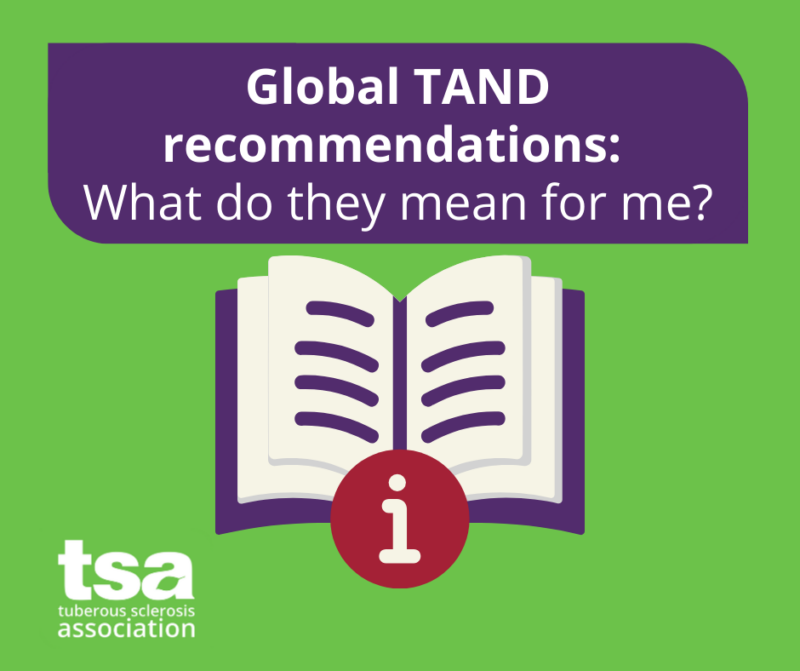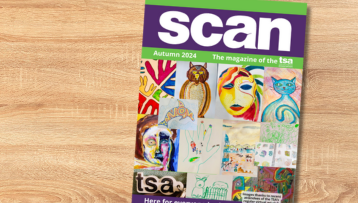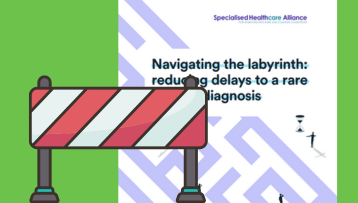The first ever official international recommendations on the diagnosis and treatment of TAND were recently published. This is an important milestone in TSC-Associated Neuropsychiatric Disorders, but what will the recommendations actually mean for people with TAND?
Published in Journal of Neurodevelopmental Disorders, the international TAND recommendations were written by researchers and medical professionals as part of the TANDem project, which includes representatives of the TSA. It’s hoped that clinicians worldwide will use the recommendations as part of their work in supporting people with TAND.
The main rule: Screen. Act. Repeat
The recommendations focus on the main rule of ‘Screen. Act. Repeat’:
- ‘Screen‘ for TAND at least annually
- ‘Act‘ by fully evaluating and treating any identified TAND challenges
- ‘Repeat‘ the process to ensure that TAND is diagnosed quickly and treated effectively
This rule is a clear and easy way for clinicians and families to ensure that people with TAND are being monitored and treated.
The ten core principles of TAND
Alongside the ‘Screen. Act. Repeat’ rule, the recommendations include 10 core principles in diagnosing, treating and managing TAND.
These principles have been made so that they apply to everyone with with TAND, regardless of things like their age or the level of support needs that they need. In building the principles, the researchers included a focus on specific TAND symptoms, such as mood, anxiety and sleep.
- Everyone with TSC is at risk of TAND
- Everyone with TSC needs lifelong monitoring for TAND
- Screen at least annually and follow up with appropriate action
- The goal is early identification and early intervention
- TAND symptoms often happen together
- Always consider the impact of physical health problems and medications for physical health problems on TAND
- Work with families and caregivers as lived experts in TSC and TAND
- Generate a ‘whole system’ plan for TAND intervention that takes into account health, social and other areas
- Be evidence-based and evidence-informed
- Strive for optimal functional outcomes and quality of life throughout the journey with TSC and TAND
How the TAND recommendations can benefit you and your family
With these recommendations, researchers and clinicians will be able to further progress their work to support people with TAND. However, recommendations and guidelines are useful only if they have a real-world impact. The TSA is sharing the recommendations with the UK TSC clinical community, to ensure that they’re taking note of ‘Screen. Act. Repeat’ and the ten core principles.
In your TAND appointments, be sure to take the recommendations with you, so that you can discuss how they can benefit you and loved ones.
Next steps
Following the publication of these recommendations, the TANDem project are now going to create a ‘TAND toolkit’, with evidence-based information on further evaluations and professional support alongside self-help strategies that will be built into an app. The team will be working with the global TSC community to ensure these recommendations empower families and are taken up and delivered by service providers to improve support for TAND.
The TSA welcomes and fully supports these recommendations, which take us one step closer to making sure that everyone affected by TAND get the support that they deserve and should expect.
You can read the published guidelines here and find out more about the TANDem project here.








































































































































